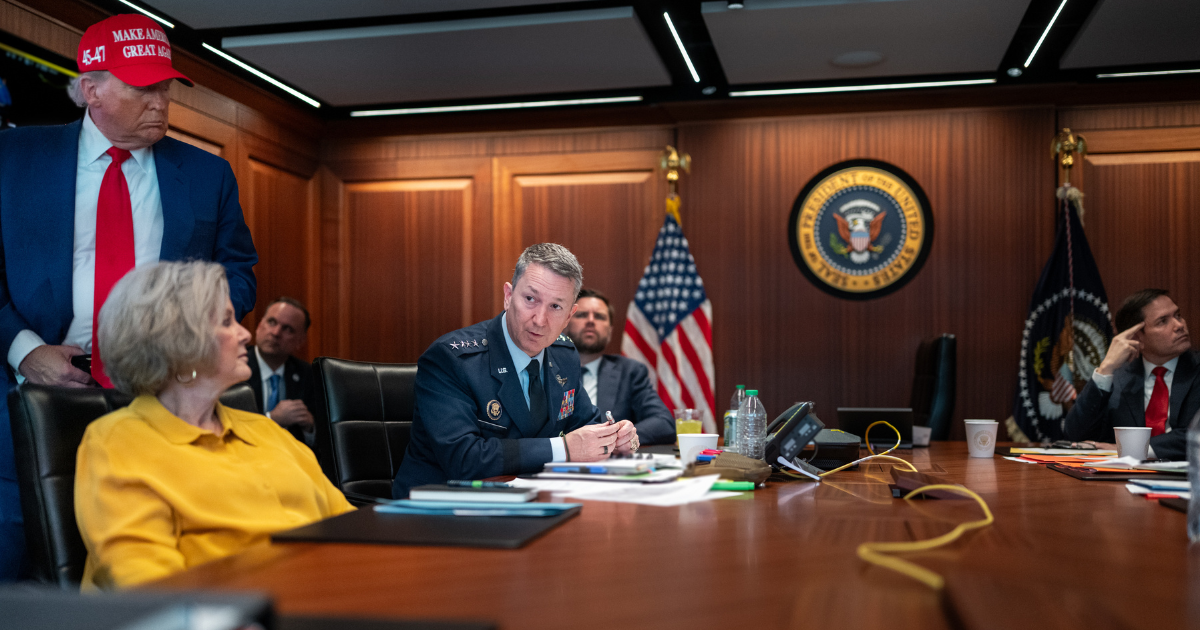EXCLUSIVE: Real Intel Ignored While Wars Escalate

Larry C. Johnson, calm and deliberate, begins by questioning the prevailing public perceptions about the war in Gaza. “You know, people are surprised at how long this is taking, but… this is not a tidy campaign, and there’s no quick solution,” he remarks at 1:15. He points out multiple times that intelligence assessments often miss the reality on the ground: “A lot of it is just guesswork, to be honest. People want to believe their own reports, but you never get the full picture” (2:44). Johnson underscores that military success is rarely as clear as governments declare.
Pressed on Israeli operations, Johnson is unsparing: “Frankly, it’s a mess. Israel’s not hitting a defined military force; they’re fighting an idea, an ideology that’s not just going to disappear because you blow up tunnels or kill a few commanders. If anything, the brutality can make things worse” (3:59). He adds, “They keep talking about destroying Hamas, but Hamas is a movement. You don’t destroy a movement with bombs. Never have, never will.”
When the interview moves toward US policy and arms shipments, Johnson’s tone hardens: “We’re giving them everything they ask for, but has it actually made them safer? Or is it just giving them the tools to get themselves in deeper?” (7:23). Recalling his own experiences, he shares, “I’ve seen bureaucracies chase their own tails, refusing to admit things aren’t going their way. That’s what worries me most, because that’s when mistakes pile up.” He starts to outline the risks but then says—once you start believing your own press releases, you open up a whole new level of danger…”
Johnson draws on his CIA background, emphasizing operational blindness that takes root at moments of crisis. “In a situation like this, you get a lot of pressure for good news. Analysts want to tell their bosses what they want to hear. Bad news travels slow—if at all” (9:14). He presses further: “Half the time, the people up top are making decisions based on what they wish was happening, not what actually is. Doesn’t matter if it’s Washington or Tel Aviv.”
He offers a blunt assessment of Israeli political leadership: “You look at people like Netanyahu—he’s not worried about strategy, he’s worried about political survival. Every decision is filtered through that. That trickles down to everybody under him” (11:08). Johnson suggests this motivates continued escalation, rather than meaningful planning.
Addressing the potential for regional escalation, Johnson cautions: “One wrong move and the whole region could blow. People always think it’s about the big decisions, but usually…it’s a junior officer or some software glitch that lights the fire” (13:06). The situation, in his words, is “fragile on a level most people can’t appreciate.”
Asked about the humanitarian situation, Johnson’s assessment is curt: “I don’t sugarcoat it. Starvation, disease, and propaganda are all weapons right now. There’s no clean war” (15:22). He emphasizes that media images can shift political calculations overnight—“images matter sometimes more than facts.”
On US domestic politics, Johnson is skeptical: “Congress acts like they have a handle on things, but most of them don’t read the briefings. They listen to whoever shouted at them last or what’s trending on cable” (18:20). He adds, “The checks keep getting written, but the questions get louder each time.”
Discussing Israeli military morale, Johnson doesn’t mince words: “You talk to people serving, and they’re exhausted, frustrated, and starting to wonder what the endgame is. That’s not a recipe for discipline or effectiveness in the field” (21:11). He notes that soldiers now have instant access to uncensored information, which “cracks the official story wide open.”
Concluding, Johnson issues a warning grounded in personal experience: “If you’re sure you know where this goes, you’re lying to yourself. Wars like this always surprise the experts, especially the ones convinced they won’t be surprised” (23:03). The real danger, he says, is that “hubris and stubbornness are the last things to die in a war room.”
Larry C. Johnson is a former CIA analyst and counterterrorism expert with extensive experience in U.S. intelligence and national security. He began his career at the Central Intelligence Agency in the 1980s, specializing in analytical work on terrorism and geopolitical threats. Johnson later joined the U.S. Department of State's Office of Counterterrorism, where he provided critical briefings to senior officials and contributed to interagency policy coordination. His firsthand experience navigating intelligence failures and institutional blind spots has shaped his outspoken critiques of U.S. foreign policy and intelligence practices.
Johnson holds a Master’s degree in public administration from Harvard University’s Kennedy School of Government. He has since become a widely cited political commentator, appearing in major media outlets and contributing to public debates on national security, war, and intelligence reform. Known for his contrarian views and sharp assessments, particularly regarding the wars in Iraq, Ukraine, and the Middle East, Johnson often challenges prevailing narratives and emphasizes the dangers of politicized intelligence. His background and commentary have made him a notable voice among former intelligence professionals questioning the direction of U.S. military and diplomatic strategy.
Source:
